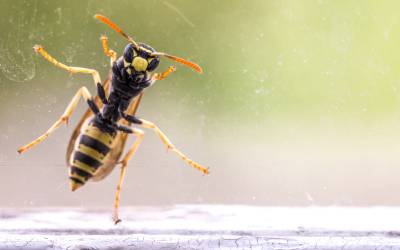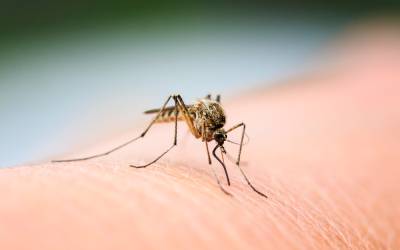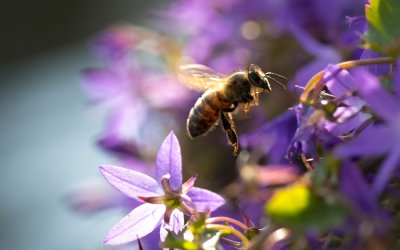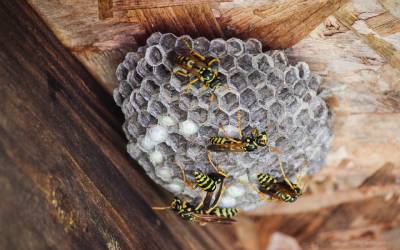The arrival of summer brings with it the excitement of being able to finally spend time in your backyard, barbequing, and creating lasting memories with your loved ones. These beautiful summer days can quickly turn into a nightmare by a few stinging party crashers. Nothing ruins a fun summer afternoon quicker than a sting from a wasp or yellow jacket. These pesky stinging insects can leave you with painful stings or send some to the emergency room due to allergic reactions. Don’t spend your summer in fear of stinging insects. With proper preparation you can reclaim your outdoor space and enjoy a sting-free summer!
How to Identify Common Stinging Insects
Wasps and yellowjackets are the most common stinging insects you may encounter in your yard. Like most common household pests, they come seeking food and shelter in and around your home.
- There are a few types of wasps that you may find in your yard such as mud daubers and paper wasps. Mud daubers are easily identified by their extremely long, thin waist and unique tube shaped mud nests. Paper wasps are brown in color and build papery umbrella-shaped nests, usually found hanging from tree branches or eaves of a home.
- Yellow Jackets are bright yellow and black in color and have a stockier body compared to most wasps. Some yellow jacket nests will look similar to a wasp nest, hanging up high in a tree or eave but yellow jackets are also known to build nests in the ground or hollowed out areas, often in old rodent burrows. You will commonly see yellowjackets at your outdoor gathering. They seek out meat and sugary foods, whereas wasps prefer over-ripened fruit and flowers.
Preventing Stinging Insects in Your Yard
It is important to be proactive in preventing stinging insects in your yard. Below are a few tips to keep these stinging pests away!
- Cover Food: Yellowjackets are attracted to meat and sugary foods. Make sure to cover food while dining outdoors to keep these party crashers away.
- Pick Up Fallen Fruit: Fresh fruit from your fruit trees is not only your favorite snack; stinging insects will seek out over ripened or decaying fruit that may have fallen from your trees. If you have fruit trees, make sure to regularly check for and remove any fallen fruit.
- Remove Old Nests: Most stinging insects will abandon their nests in the winter. Dispose of these nests while they are inactive. If the nest is active, many people choose to use canned spray treatments. Be extremely cautious when using these DIY methods. Wasps and yellowjackets are aggressive when threatened and are able to sting multiple times. Removing active nests is best left to professionals.
- Close Garbage Cans: You will often find stinging insects buzzing around garbage cans looking to scavenge thrown out food or sugary snacks. To prevent these little dumpster divers from hanging out in your yard, make sure to securely close garbage cans.
Professional Extermination: The Safest Solution
Attempting to remove a wasp or yellow jacket nest on your own can prove ineffective and hazardous, potentially resulting in swarms of aggressive stinging insects. The best and safest way to ensure your yard is free of stinging insects is to enlist the help of a professional extermination service like those from Inman-Murphy Termite & Pest Control. Our expert technicians have both the experience and equipment to safely and effectively remove and stinging pests from your yard. Enjoy a sting-free summer this year and contact us today!




